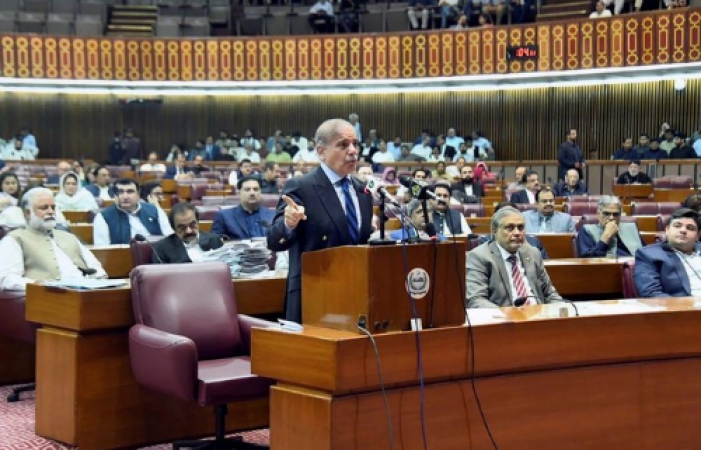
Islamabad: The South Asian nation of Pakistan entered election mode on Thursday after President Arif Alvi approved a request from Prime Minister Shehbaz Sharif to dissolve the National Assembly.
According to Article 58-1 of the Constitution, the president dissolved the National Assembly on the prime minister's recommendation, according to a statement released by the president's office.
The five-year term of the legislature was set to end on August 12. Instead of the 60 days that would have been required if the assembly had been dissolved in accordance with the Constitution's rules at the end of its term, the caretaker administration now has 90 days to set up a general election.
Also Read: US Appeals to file sanction of compensation amount against Twitter
The election is therefore scheduled for November, but the government's decision to accept the findings of a new digital census last week has raised some questions because the Election Commission is now required by the Constitution to redraw constituency boundaries in light of the most recent population counts. The procedure might take up to six months, which would mean a postponement of election day.
The commission has already stated that if it needs to redraft constituency boundaries in order to hold a general election based on the updated population counts within the allotted three-month period.
The country's numerous political and economic problems persist in the meantime. Imran Khan, the former prime minister whose ouster last year sent the nation into months of unrest and violent street protests, is at the centre of the political crisis.
The former premier, who was by far the most well-liked politician in the nation, was found guilty and sentenced to prison on graft charges last week. On Tuesday, election authorities banned him from politics for five years, effectively ending his chances of running in any future elections.
The conviction and disqualification are being appealed by Khan's legal team, but he is also facing more than 100 other cases involving allegations of everything from terrorism to murder and corruption. He claims they are a part of an effort by his political rivals and the influential military establishment to undermine him and his Pakistan Tehreek-e-Insaf party. Both contest the accusation.
Also Read: News Media groups to get together to benchmark the AI model work
Millions of Pakistanis are currently experiencing a crisis related to cost of living while inflation continues to be at record high levels. With prices rising 3.5 percent in July compared to June, the country's Consumer Price Index increased by 28.3 percent year over year. After reaching a record-high 38 percent in May, the index increased by 29.4 percent year over year in June.
In order to meet the fiscal goals outlined in a deal with the International Monetary Fund, Pakistan announced an increase in the price of petrol and diesel on August 1. This further increased inflation.
Also Read: Obama and Biden Reunite as Former President Joins 2024 Race Ahead of Schedule
On June 30, Islamabad managed to secure the $3 billion IMF agreement. In exchange, it agreed to a petroleum tax that could be as high as 50 rupees ($0.60) per litre, as well as a number of other painful measures like higher energy costs and a market-based exchange rate that has already increased inflation.